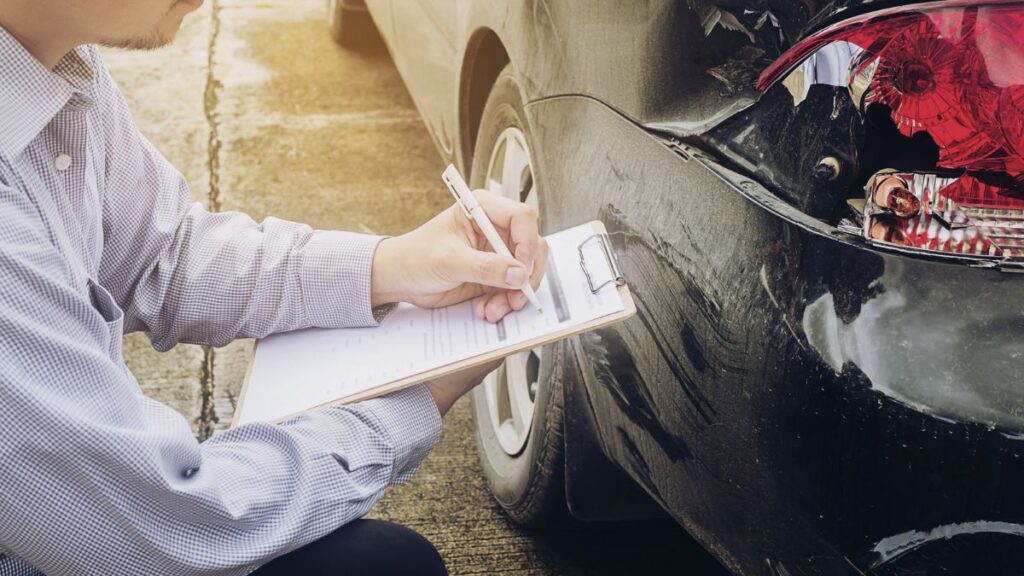In Marietta, Georgia, a city known for its bustling roadways and growing suburban traffic, Car Accident Injury Case are designed to ensure fair compensation for individuals who suffer injuries or damages due to the negligence of others. With major routes like I-75 and Highway 120 running through the area, collisions are unfortunately common, making it all the more important for residents to understand their rights.
Understanding how evidence plays a pivotal role in securing a successful claim can help you navigate the complex legal process.
This article will break down the types of evidence you need, how they support your claim, and why working with an experienced car accident attorney in Marietta can significantly impact the outcome of your case. From photographs to witness testimonies, we’ll explore all the key factors that can make or break your personal injury claim.
Understanding the Types of Evidence in a Car Accident Injury Case
When it comes to building a strong car accident injury case, the right evidence can make all the difference. Whether you are pursuing compensation for medical bills, lost wages, or pain and suffering, your case will primarily rely on the strength of the evidence you provide.
Here’s a breakdown of the most crucial types of evidence that can support your claim.
1. Photographs and Video Evidence
A picture is worth a thousand words, especially when it comes to car accidents. Photographs and videos taken at the scene can help establish crucial details, such as:
- The extent of vehicle damage.
- Skid marks or accident debris.
- Traffic signals, road signs, or conditions (e.g., wet roads, poor visibility)
- Position of vehicles post-collision.
In Georgia, preserving these visual details is key, as they can prove fault or the severity of injuries sustained. Remember, the earlier you take photos, the better, as accident scenes can quickly change, and evidence might be lost.
2. Police Reports
After a car accident, law enforcement typically arrives at the scene to investigate the incident. They’ll file a report that summarizes the accident, including:
- Statements from the involved parties.
- Witness statements.
- Observations of the officers.
In Georgia, the police report is often used as a primary source of information in accident claims. While it’s not necessarily conclusive, it can provide a solid foundation for your case, especially if the officer issues a citation or notes signs of negligence (e.g., speeding, running a red light).
3. Witness Testimonies
Eyewitnesses can provide valuable insight into the events that preceded and followed the accident. In many cases, their testimonies can confirm:
- The sequence of events (who had the right of way, how the vehicles collided)
- The behavior of the at-fault driver (e.g., distracted driving, speeding)
- The immediate aftermath (signs of injury, emergency response)
Georgia’s legal system allows witnesses to testify in court, and their statements can play a pivotal role in strengthening your case. The more credible the witnesses, the stronger the evidence.
4. Medical Records and Bills
One of the most critical components of a personal injury case is proving the extent of your injuries. Medical records and bills help establish:
- The severity of the injuries.
- The treatment received (hospitalization, physical therapy, etc.)
- Long-term effects (chronic pain, disabilities)
Under Georgia law, you are entitled to seek compensation for the medical costs directly related to your injuries. However, you’ll need to provide proper documentation to validate your claims. This may include doctors’ notes, prescriptions, diagnostic test results, and detailed medical bills.
5. Accident Reconstruction Experts
In complex cases, particularly when liability is disputed, an accident reconstruction expert can help piece together the events leading up to the crash. These professionals can:
- Analyze vehicle damage.
- Assess the speed and direction of vehicles.
- Reconstruct the scene using physics and engineering principles.
In Georgia, experts are often brought in to clarify technical or disputed aspects of the case. Their testimony can make a significant impact, especially if the facts are unclear or contested by the other party.
6. Driver and Vehicle Information
Obtaining the correct information about the other driver and their vehicle is essential. This includes:
- Driver’s license number
- Insurance information
- Vehicle registration
In Georgia, when involved in an accident, drivers are legally required to exchange their information. If you’ve been injured, this data can help ensure the correct party compensates you, whether it’s the at-fault driver’s insurance company or through your policy if they are uninsured.
7. Traffic Camera and Surveillance Footage
In some cases, traffic cameras or nearby businesses may have captured the accident on video. If such footage exists, it can provide undeniable proof of how the accident occurred. You’ll want to obtain these recordings quickly, as many public or private cameras overwrite footage after a short period.
8. Cellphone Records and Text Messages
In today’s world, distracted driving is a leading cause of accidents. If the at-fault driver was texting or talking on the phone at the time of the crash, cellphone records can help establish this. These records may show:
- Text messages sent or received.
- Phone calls were made during the time of the accident.
Georgia law prohibits texting while driving (O.C.G.A. § 40-6-241), and if the at-fault driver was engaged in this behavior, the evidence could strengthen your claim.
The Importance of Thorough Documentation
In Marietta, as with the rest of Georgia, it’s essential to keep a detailed record of all your interactions and evidence following an accident. This includes:
- Documenting your injuries (photos, symptoms, treatments).
- Keeping track of medical appointments and costs.
- Noting your communication with the insurance company.
Thorough documentation not only helps establish the facts of your case but also shows that you’ve taken steps to mitigate your damages.
Conclusion
When it comes to pursuing a car accident injury case, every piece of evidence matters. Whether it’s photos from the scene, witness statements, or expert testimony, the strength of your evidence can significantly influence the outcome of your case.
If you’ve been involved in an accident in Marietta, ensure you take immediate steps to collect relevant evidence and work with legal professionals who can guide you through the complexities of the process. Proper evidence can turn a complicated case into a solid one.







